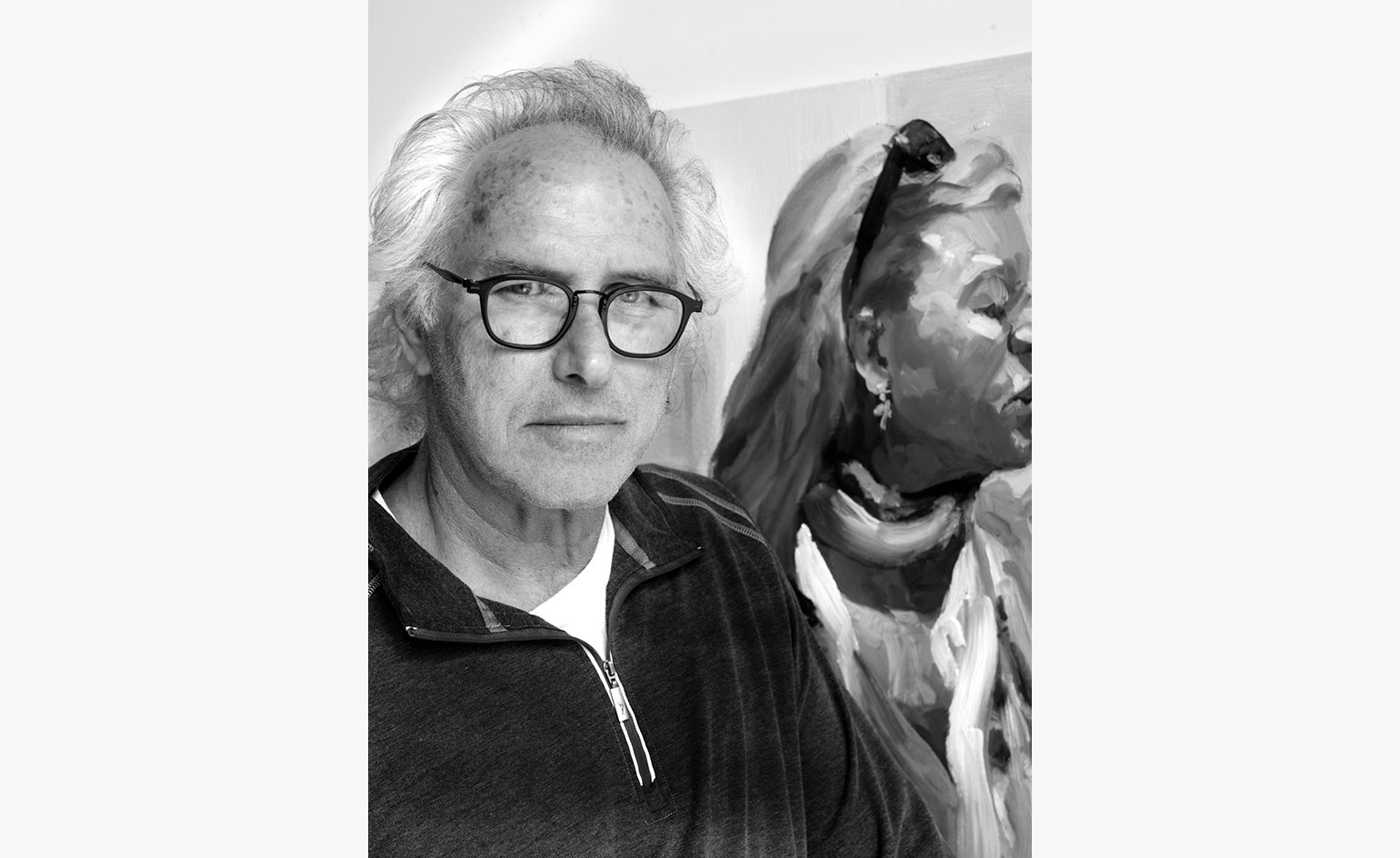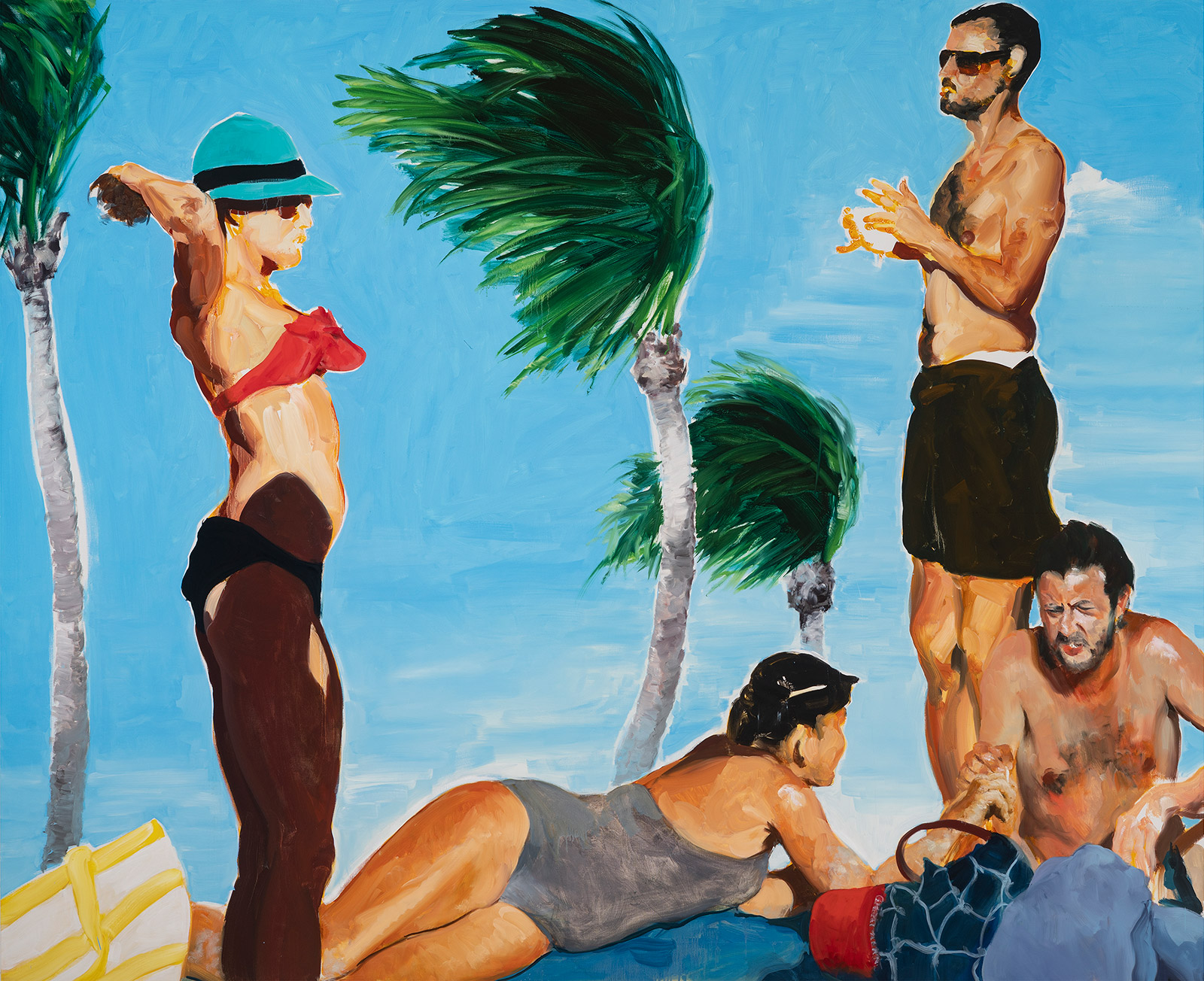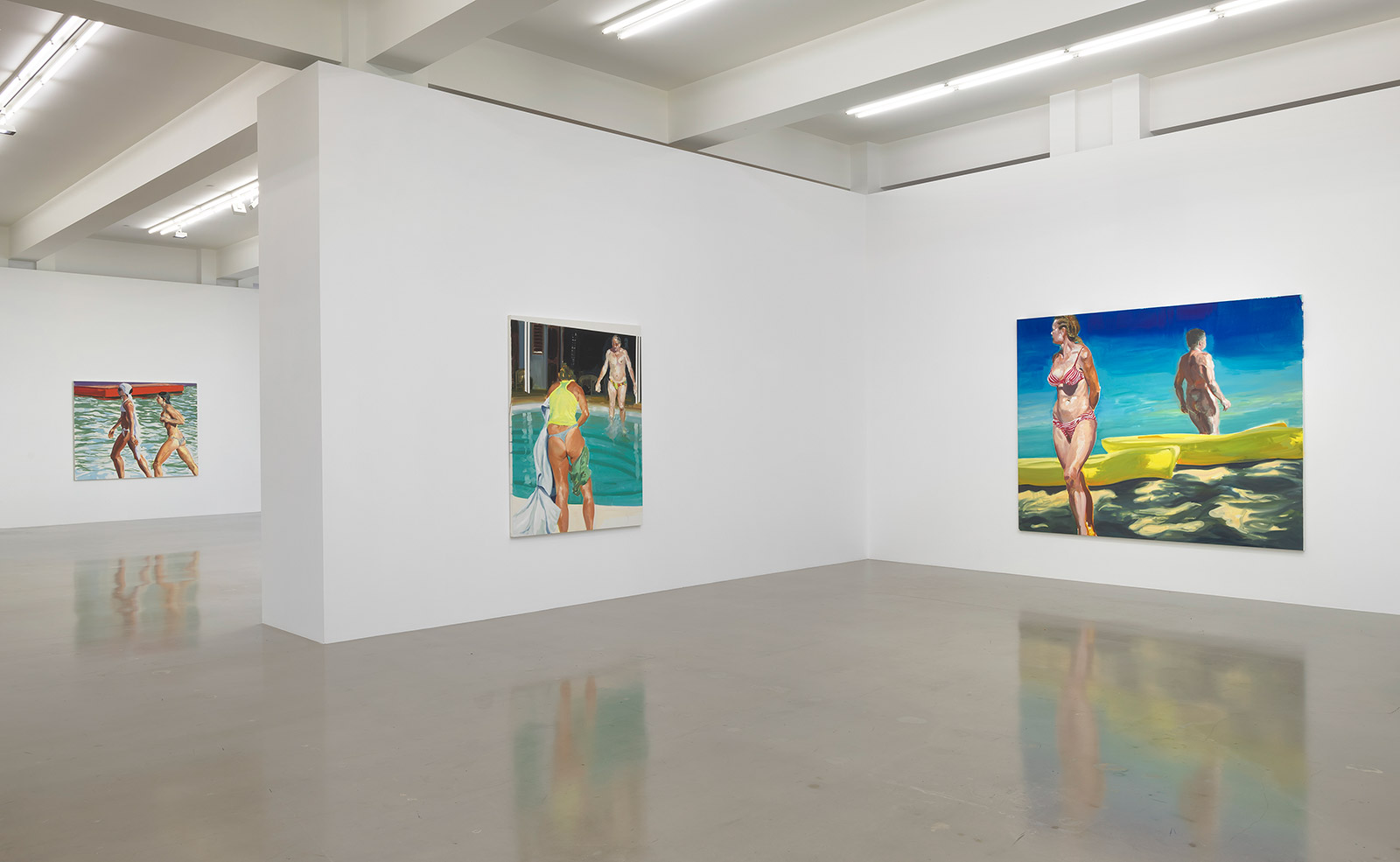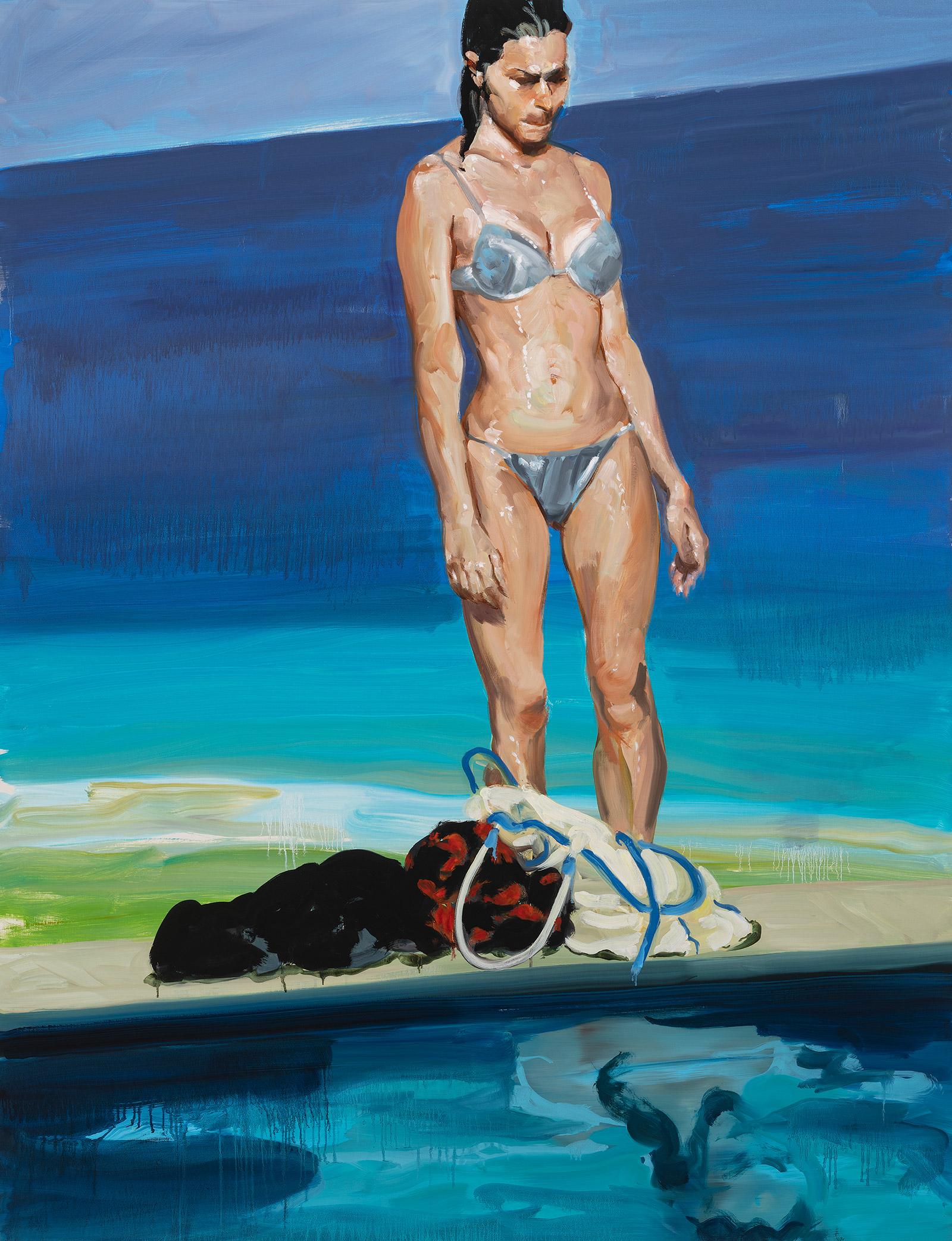Out of office: coffee and creative small talk with Eric Fischl
Bodil Blain, Wallpaper* columnist and founder of Cru Kafé, shares coffee and creative small talk with leading figures from the worlds of art, architecture, design, and fashion. This week it’s American artist Eric Fischl, who is making a splash at Sprüth Magers in Los Angeles with an exhibition of new paintings centred on bodies of water

Receive our daily digest of inspiration, escapism and design stories from around the world direct to your inbox.
You are now subscribed
Your newsletter sign-up was successful
Want to add more newsletters?

Daily (Mon-Sun)
Daily Digest
Sign up for global news and reviews, a Wallpaper* take on architecture, design, art & culture, fashion & beauty, travel, tech, watches & jewellery and more.

Monthly, coming soon
The Rundown
A design-minded take on the world of style from Wallpaper* fashion features editor Jack Moss, from global runway shows to insider news and emerging trends.

Monthly, coming soon
The Design File
A closer look at the people and places shaping design, from inspiring interiors to exceptional products, in an expert edit by Wallpaper* global design director Hugo Macdonald.
Bodil Blain: How do you take your coffee?
Eric Fischl: I love my coffee. I have a bean-to-cup machine and I use roseline.
BB: How has the new US political landscape affected your work?
EF: Over the last few years, since the election cycle that brought Trump into power, there has been an apotheosis of something that had been building for some time. It was something I just couldn’t get away from and needed to look at. Not from a political perspective, but looking at what’s happened to our dreams, our pride, our national mythologies – it’s an existential crisis more than a political one. It’s manifested itself in a political sense, but it has come out of the level of greed and consumption, the belief that the lifestyle that you procure, that you surround yourself with will protect you from what is actually happening.

The Exchange, 2018, by Eric Fischl.
There’s something missing, I think, at the centre of all the work – there’s a feeling of something that’s not there. In one of my paintings, you’re presumably looking at a middle-aged couple, near them two younger figures who are presumably their children, or perhaps not, standing around a swimming pool. But the older man is paying more attention to the youthful female and the older woman is drinking, smoking, more isolated. She's done up to attract his attention, but she’s also resigned to the fact that this is something in the male DNA, something expected. All my work has something to do with characters who feel like they’re masters of their domain, but have something missing.
BB: I often describe your work to others as quite cinematic and I feel like I want to see the continuation, the continuation of that discomfort that lingers in all your paintings: has that ever interested you?
EF: People have asked me whether I would be interested in making films. First of all, because I grew up watching movies and TV long before I even saw a painting. So they think it’s a natural thing to move into film. But the difference between a cinematic narrative that extends the subject matter over a period of time, versus the painting, which brings that narrative down to a single moment – it’s a totally different sensibility. And for me, to find a place to stop, the place that is the most charged. That’s the sort of tightrope I walk, trying to find out: where is that moment? If you don’t stop it at the right point, it becomes too vague or conversely too conclusive. I’m not looking to create a linear storyline, but more a series of instances that stand alone. Being a painter is always a combination of incredible pleasure and an incredible pain, but it’s that interest with capturing or creating those instances that fascinates me.

Installtion view of ‘Complications From an Already Unfulfilled Life’ at Sprüth Magers, Los Angeles.
BB: How do you build your paintings?
EF: People ask me, ‘When do you know your painting is finished?’ It’s every painter’s question, but what I say is that ‘it’s done when I find myself not looking at it as a painter’. A painter looks at [their] painting, and whether that yellow is yellow enough, whether that edge is hard enough: you’re looking to see whether it needs more or less. When I start looking at it and go, ‘Who are these people? What are they doing?’, then, and only then, do I know I’m finished.
'Being a painter is always a combination of incredible pleasure and an incredible pain'
BB: A lot of your work uses the body in interesting ways, how deeply do you think about that?
EF: I guess it’s to do with presence and absence. In one painting I have a male and female figure, the man’s hands are indicated more simply. He’s less there than she is, he may not be there at all, except as a memory. In another, I emphasise the face, in that painting, the woman’s face is there more than her body is. Everyone has a different relationship with their bodies, from comfortable to less comfortable. The soul and the body are in constant conflict with each other. You can stop a body and you can feel that the soul is continuing to turn. You can feel that there is something that interfaces the flesh. I guess it’s a cultural concern for me also: Americans are obsessed with transgressions of the flesh.

Self-Reflection, 2018, by Eric Fischl.
BB: It’s not just the body that features in your work, though, it’s your wonderful sense of movement.
EF: Photography taught me that. I paint from photographs and collages of scenes. Photograph captures life so thinly, everybody is in motion, everybody’s slightly turning. If you’re going to tell a narrative, you have to have motion. I try and put it in the gesture, the way my figures carry their body weight – it’s so important.
BB: Having seen your work, I get a sense of life of life being wasted on comfort.
EF: I always think that what is interesting are these lives which are fraught, but unfulfilled. There’s no place in this structure of life today to process the meaning of life in relation to death. It’s all concerned with something external, signifiers that show your wealth or strength, but all of us inside can feel so empty and go around life searching for love.
BB: I think there is a hint of self-doubt in many creative endeavours, do you ever feel that?
EF: Of course. There’s this term in French, which I think loosely translates as regret on the stairway and I think in everyone there's that feeling you could have done more. It’s the nature of the work, you put it out there. But one hopes at the very least, as an artist, that your audience looks at your work and thinks ‘I feel the same way’. That’s how art should function. It shows our strengths, our fantasies, but also our weaknesses and insecurities; art binds us together.
A version of this article originally featured in the May 2018 issue of Wallpaper* (W*230)
INFORMATION
‘Complications From An Already Unfulfilled Life’, 19 June – 30 August, Sprüth Magers. spruethmagers.com
Receive our daily digest of inspiration, escapism and design stories from around the world direct to your inbox.
ADDRESS
Sprüth Magers
5900 Wilshire Boulevard
Los Angeles